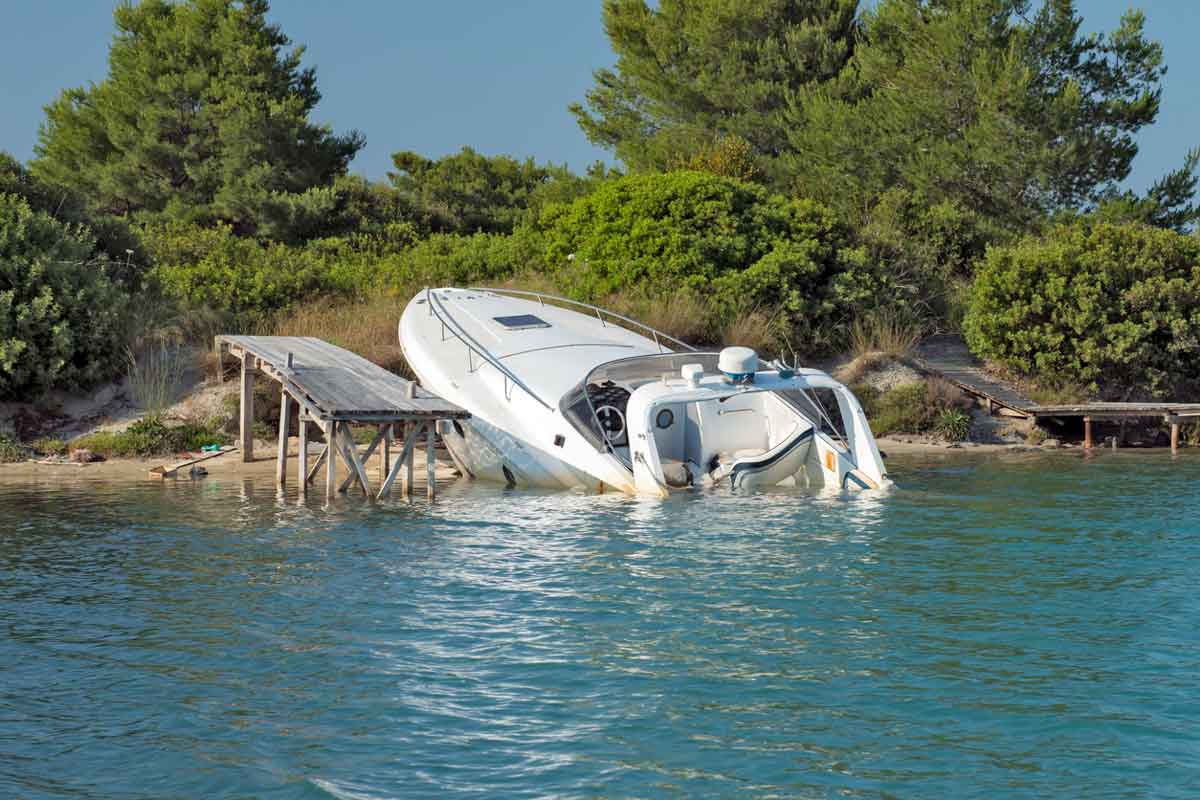In 2017, there was a fatality rate of 5.5 deaths for every 100,000 registered recreational boats (also known as pleasure boats) and sea vessels. Boating accidents can leave you with a serious injury or even prove fatal. More concerning is that fact that it would seem that the death rate from fatal boating accidents that includes recreational boaters is on the increase.
When you’re out sailing or in your boat fishing, you want to be able to feel free and safe. The last thing on your mind when boating is to end up in an accident. But they do happen and if you are not at fault, then you should be owed a fair share of compensation for any injuries, deaths, or even repairs needed for your vessel.
Therefore, we’re going to learn everything you need to know if you’re involved in a boating accident in your personal watercraft.
What to Do if You’re in a Recreational Boat Accident
Every boating accident is different because there are numerous ways to be involved. But the steps you take to receive the fair and correct compensation for your injuries or even the death of a loved one.
Seek Medical Care
Even if an injury seems minor, the first thing you should do is seek medical care. That way you can heal and receive all the medical attention you need for your situation. Sometimes, a small injury in the wrong area can lead to bigger problems down the line.
You’ll want to copies of all the medical records from your boat accident injury. These medical records can help your case.
Gather Information and Evidence
If the boat operator at fault carries insurance, you need to gather all the relevant information. However, not all states require a recreational boat owner to carry insurance, like you would with a car.
You’ll also want to gather the names and phone numbers of the boat operator as well as other passengers or any witnesses.
If possible, take photographs of the accident and of your injuries. These photographs may be useful evidence if you sue the boat operator.

Report the Accident
You should always report an accident to the U.S. Coast Guard. This creates a record of the incident that you can use in court.
Federal law requires you to report the accident if someone is killed, has been seriously injured, someone has disappeared at sea, or there’s major damage to one of the sea vessels.
Proving Negligence
In any accident, if you deserve compensation, you need to prove negligence. Negligence is who or what is at fault for the accident. This can be a boat operator or even equipment manufacturing companies.
The most common types of accidents due to negligence are:
- Collision with another boat: When two recreational boats collide, the fault is usually that of both boat operators. However, one operator is usually more at fault than the other. An injured operator can bring a lawsuit forth against the other operator, or an injured passenger can bring a personal injury lawsuit against an operator.
- Collision with a wave: In the case of a boat colliding with a wave, it can be hard to tell if the operator was negligent or the wave couldn’t be avoided. If you’ve received an injury due to the negligence of the operator, you can sue the operator for their negligent behavior.
- Collision with rocks and land: Your injury could be due to a collision between the recreational boat you’re on and land or rocks in the water. It can be tough to prove an operator is liable for such an accident. It has to be proved that the operator could see it and could have made the decision to avoid these collisions. On the flip side, some of these boat accidents can’t be avoided due to lack of light or weather changes.
- Collision with another boat’s wake: A wake is when s a big change in waves due to another boat speeding, regardless of knowing another vessel is near. This is considered negligence on the boat operator. Hitting a wake can cause injuries or worse, passengers can be thrown overboard and drown.
- No or little required safety equipment: Federal laws dictate what safety equipment you should have on your recreational boat. For example, there needs to be a life jacket for every passenger on your vessel. If you end up in a boat accident, failure to have some of the required equipment can make rescue harder or even impossible. If you were a passenger on someone’s boat during your collision and the operator lacked safety equipment, you can sue if this leads to an injury.
Some states have either comparative negligence/fault (also known as contributory negligence laws).
These state laws state that, if you’re found at fault for the accident, you won’t be able to receive any compensation. Some state laws state that if you’re found to be somewhat at fault for the accident, you can only receive so much in compensation.
These laws apply to you when your boat accident happens in local ports or local channels. However, none of these state laws can override any applicable federal laws.
What You Need to Prove in Your Personal Injury Lawsuit
If the negligent person or company for your injuries doesn’t have proper boat insurance, you’ll need a personal injury lawyer.
After you and your lawyer has found whose negligence caused your injuries, you will also have to prove:
- The boat operator owed you the duty of care
- The boat operator’s negligent behavior was the cause of the boat accident
- Your injury was caused by the accident and the operator’s negligence
Conclusion
If you’ve been injured in a boat accident or you’ve lost someone you love because of someone else’s negligence, you should absolutely seek legal help. Maritime injury cases are difficult and complex and you will need the help of a personal injury lawyer who specializes in maritime cases to help you.
You can get additional, specific legal guidance on your situation by filling out the boating / maritime accident questionnaire below, or chat online with a Laws 101 maritime law expert.
